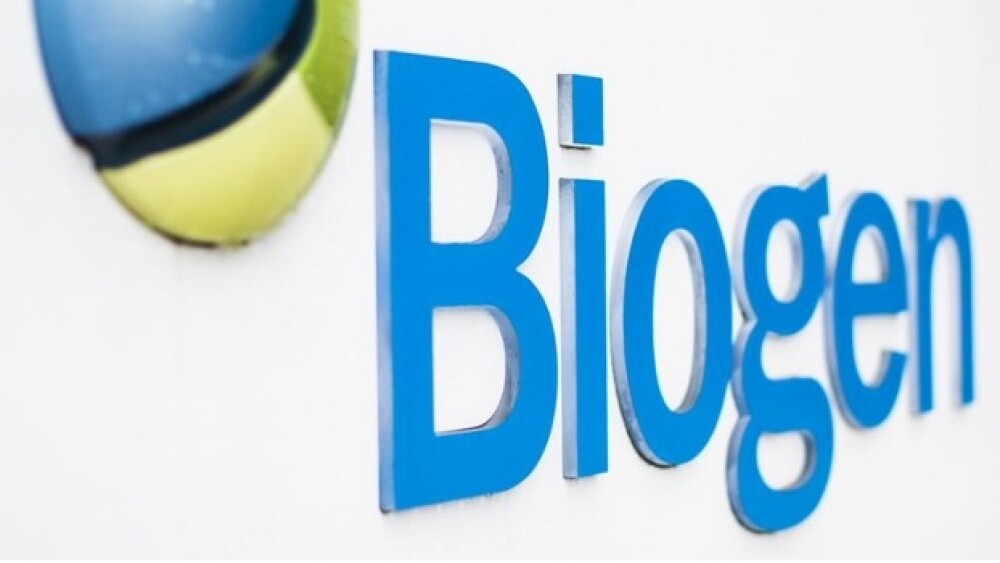Despite controversy over the drug’s effectiveness, it appears to have spiked interest in investing in Alzheimer’s drug companies, something that had been on the decline for several years.
Photo courtesy of Biogen.
Yesterday, the U.S. Food and Drug Administration (FDA) approved Biogen’s Aduhelm (aducanumab) for Alzheimer’s disease, the first new drug approval for the indication in 20 years and the only one to focus on the underlying roots of the disease. Despite controversy over the drug’s effectiveness, it appears to have spiked an interest in investing in Alzheimer’s drug companies and research efforts, something that had been on the decline for several years.
Biogen shares rocketed 38% at the news, but other companies in the sector also had a boost. Eli Lilly and Company, for example, which is working on a drug similar to Aduhelm for Alzheimer’s, had its stocks climb 12%.
The iShares Nasdaq Biotechnology ETF had only risen 1% this year, compared to the 12% increase in the S&P 500, and the S&P pharmaceuticals index only gained 4.7% for the year. But the Nasdaq Biotechnology ETF rose 3.4% yesterday, the largest daily percentage gain in seven months. And driven by Lilly, the pharmaceuticals index grew 0.66%.
“The biotech sector needed a spark and this was an explosion,” said Kevin Gade, a biotech and pharma portfolio manager for Bahl & Gaynor.
Sahak Manuelian, head of equity trading at Wedbush Securities, agreed, telling Reuters, “This might just be the catalyst biotech investors needed to get this group back on track.”
A string of South Korea-based biotech companies working on Alzheimer’s and other central nervous system disorders also saw a spike: PeopleBio’s stock climbed 18.84%; FutureChem’s rose 9.48%; ABL Bio’s rose 2.5%; Medifron DBT’s climbed 2.44%; Kainos Med nudged up 1.52%.
Prior to the Biogen approval, most investors and analysts most optimistically felt there was only a 50/50 shot of the FDA granting the drug approval. Other factors, including the pandemic and uncertainty at the FDA because President Biden has yet to name a permanent FDA commissioner, have generally clouded industry investments.
Evaluate Vantage points out that biopharma companies have dumped billions of dollars into Alzheimer’s drug development. Evaluate Omnium, for example, estimated that Biogen’s aducanumab clinical trials probably ran about $1.63 billion. In his open letter published yesterday, Michel Vounatsos, Biogen’s chief executive officer, said the company had invested “more than $28 billion in research and development since 2003.” That figure appears to be the company’s overall R&D investment, perhaps a reminder that the company, as he also noted, is investing in more than 30 clinical programs currently, including Parkinson’s disease, ALS and stroke, among others.
Evaluate Vantage reported investment to date, including Roche and AC Immune’s $1.01 billion for trials of crenezumab; Biogen and Eisai’s $1.42 billion in BAN2410 (lecanemab); Roche’s $2.27 billion for gantenerumab; and Eli Lilly’s $2.8 billion in solanezumab, all of which are ongoing for Alzheimer’s. They also report that Pfizer and Johnson & Johnson dropped $2.42 billion on bapeineuzumab, which they have since abandoned.
Of course, Aduhelm was approved under an Accelerated Approval pathway, which requires Biogen to conduct post-market studies to verify (or prove) the drug’s efficacy. This leads to the possibility that the approval could be rescinded, which is not unprecedented.
The FDA has rescinded some accelerated approvals recently, in generally higher numbers than is typical or expected. These were mostly in oncology indications.
One argument against Aduhelm’s approval, even aside from the relatively minimal benefit, is that many Alzheimer’s experts feel that it will sidetrack research and investment into better drugs for the disease, especially given that amyloid, the abnormal protein that accumulates in patients’ brains and which the drug removes, is only part of the Alzheimer’s story. The disease is quite complicated and not well understood, and there are numerous arguments and theories related to another abnormal brain protein, tau, neuroinflammation, and abnormal immune activity on the part of microglia, the brain’s immune cells. And those are just a few examples of other likely avenues of research.
Dana Goldman, director of the Schaeffer Center for Health Policy & Economics at the University of Southern California and scientific adviser to Biogen, and Darius Lakdawalla, director of research at the Schaeffer Center and former consultant to Biogen, wrote an op-ed in STAT suggesting instead that Aduhelm will lead the way to what will likely be a multi-drug therapy for the disease, not unlike what is seen in HIV, cancer and many other indications.
“Clinicians can now look to the possibility of combining aducanumab with other therapies for maximum effect,” they wrote. “Even more exciting is the possibility of using the drug to attack amyloid buildup in people with no symptoms of Alzheimer’s identified through novel blood tests and genetic markers currently under development.”
If that is the case, it means investment — and a lot of it — in other therapies, diagnostics, and treatment regimens.





